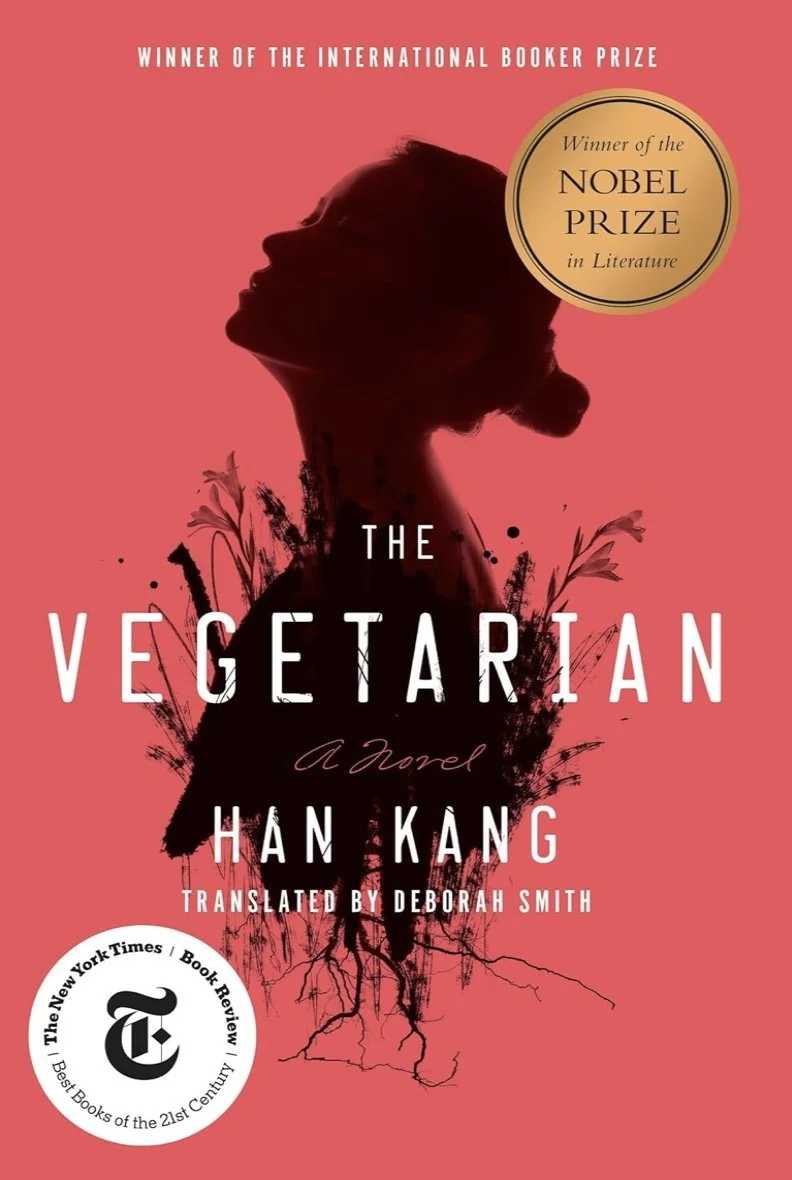The Vegetarian
by Han Kang
A Harrowing Exploration of Autonomy and Rebellion
Han Kang's The Vegetarian transcends its premise of a woman’s decision to stop eating meat, delving instead into a profound and unsettling exploration of autonomy, mental illness, and the crushing weight of societal expectations. This isn’t a novel about food, it’s a story about survival through refusal.
Yeong-hye’s decision to become a vegetarian is not the cause of her unraveling but a reflection of it, a symbolic act of rebellion against a society that consumes women without pause or permission. And yet, rather than hearing her voice, we experience her story entirely through the perspectives of others: her husband, her brother-in-law, her sister. Each of them misinterprets her choices, projecting their own discomforts and desires onto her silence.
This narrative choice, brilliantly executed, only amplifies Yeong-hye’s isolation. She is never allowed to own her story. Her resistance is pathologized. Her body becomes the battleground on which others play out their frustrations, obsessions, and grief. What unfolds is not simply a descent into madness but a stark confrontation with how society fails, consumes, and ultimately abandons those who do not comply.
Could Yeong-hye be the reflection of every woman? How many other decisions, choosing not to marry, not to have children, not to conform, could be swapped for vegetarianism in this tale and yield the same tragic result?
Han Kang’s prose is quiet and devastating. Every word is deliberate. Every scene lingers. The Vegetarian is not an easy read, but it is a necessary one. It demands we examine our assumptions about identity, control, and the price of non-conformity in a world that punishes difference.
Trigger Warnings: Depictions of physical and sexual violence, institutionalization, body autonomy violations.
My Take:
When I first read The Vegetarian, I didn’t expect it to sit with me so heavily, but it did. Days after finishing, I kept turning over the same question in my mind: what does it cost to say no in a world that only values yes? Yeong-hye’s silence felt familiar, not in circumstance, but in sensation, the feeling of shrinking, of being watched, judged, misunderstood. This book disturbed me in ways I couldn’t quite name, and maybe that’s the point. It asks us to look at the quiet unraveling of women who don’t fight loudly enough to be heard.
Where to Read It:
The Vegetarian is available on Amazon — Come along to read other amazing books with the My Asian Era book club on Fable.
Other books by this author:
If The Vegetarian resonated with you, Han Kang’s other translated works offer even deeper explorations of memory, identity, and grief:
Human Acts — A harrowing look at the 1980 Gwangju Uprising, told through shifting perspectives. Raw, communal grief rendered in exquisite prose.
The White Book — A lyrical meditation on loss and rebirth, structured as a fragmented elegy around the color white.
Greek Lessons — A quiet, philosophical novel about language, love, and human connection, told through the parallel experiences of two people in silence.
We Do Not Part — Han Kang's most recent novel (2025), exploring the enduring bonds of friendship and the long shadows of historical trauma, centered around the Jeju Uprising.
Stay tuned for full reviews of each title in our Han Kang series.

